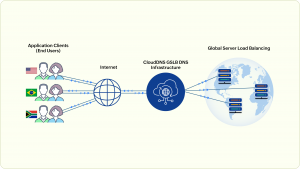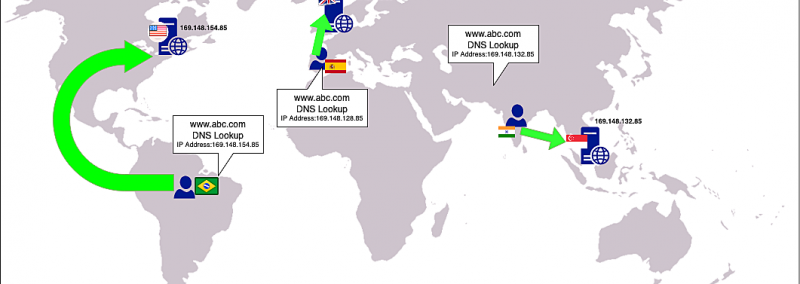
In a world where businesses operate globally, managing DNS queries across multiple regions can be complex. When clients from various locations send queries for a domain, those queries must be routed to the most appropriate DNS host. Factors such as the client’s geolocation, IP address, and network type play a crucial role in ensuring traffic is directed to the right place for better performance. DNS filters provide the criteria for routing traffic efficiently.
Organizations often deploy multiple DNS hosts in different locations to enhance network efficiency and improve user experience. Tools like ManageEngine CloudDNS make this process easier by simplifying the administration of queries, records, and domains—especially when it comes to optimizing network traffic routing.
Download a 30-day, free trial to explore how DNS filters can impart intelligent network traffic distribution in your organization!
What are DNS filters?
DNS filters are powerful network routing tools that direct traffic to specific DNS hosts across the globe based on predefined criteria. CloudDNS offers three primary DNS filters that distribute traffic according to the client’s geolocation, autonomous system number (ASN), and IP address.
1. Geo filters
Geo filters route network traffic based on the client’s geolocation. Each filter is assigned an IP address corresponding to a DNS host in a specific region. This ensures that queries are routed to the nearest host, improving response speed and network efficiency for users.

2. ASN filters
ASN filters direct traffic based on the client’s network. ASNs are unique identifiers for networks on the internet, ranging from 16-bit to 32-bit numbers. By using ASN filters, organizations can permit or restrict traffic from specific networks, enhancing security and allowing more granular control over network access.
3. IP filters
IP filters route queries based on the client’s IP address. This is especially useful for allowing or denying specific IPs from accessing the organization’s network. It provides an additional layer of security by enabling selective resolution, protecting against malicious traffic and unauthorized users.
How can DNS filters benefit your organization?
Using DNS filters can improve network efficiency in your organization. Their benefits include:
Enhanced network security
DNS filters help block unauthorized or malicious traffic by allowing selective query resolution based on factors like geolocation, IP address, and ASN. This makes it harder for attackers to breach your network, safeguarding sensitive data and creating a more secure environment for users.
Optimized network segmentation
By steering traffic to specific DNS hosts based on predefined criteria, DNS filters streamline the flow of data. This reduces network congestion, eliminates response delays, and prevents query overlaps, making network administration simpler and more efficient.
Increased response speed
By routing network traffic to the respective servers, the targeted client group will be benefited with faster response from the nearest DNS host for Geo filters, or from the host holding the IP address or ASN value of the clients for IP filters and ASN filters. This can increase efficiency and reduce network delay for clients.
Improved network service
By enhancing security and response time, DNS filters help organizations deliver a faster, more reliable network service. Selective routing ensures that legitimate users are served quickly, while potential threats are kept at bay. This boosts customer trust and satisfaction with your network services.
Streamline your organization’s network traffic distribution for selective responses with DNS filters
CloudDNS offers advanced DNS filtering options that simplify network traffic routing to multiple hosts based on geolocation, ASN, and IP address. With these filters, administrators can ensure efficient traffic distribution, prevent security breaches, and improve network performance—all while maintaining control over who can access the network.
Download a 30-day, free trial to explore how DNS filters can transform your network management today!


Really helpful ideas, this post was just perfect! https://blogs.manageengine.com/